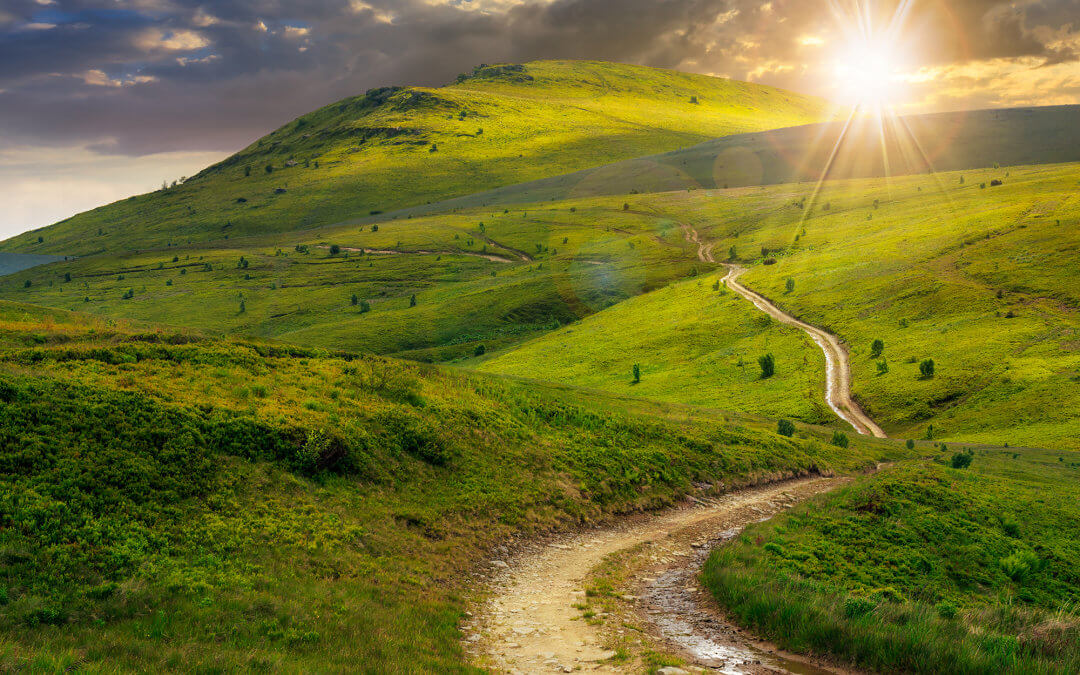After a great storm that had lashed them non-stop for nine days, Odysseus and his men landed on what appeared to be a beautiful and uninhabited island. However, weary of the dangers that might be hidden there he instructed three of his men to venture inland and explore while the rest waited with the boats by the shore.
They waited and waited but the three failed to return. With another group he set off inland to find out what had happened to them. Less than ten minutes after they set off, they came to a clearing which was surrounded by tall trees. From the trees long vines hung which were dripping with golden fruit. The air was pregnant with a rich honey-scent.
Just ahead people were sprawled everywhere – men, women, and children – gorging themselves on the golden fruit. In their midst he recognised the figures of his three men, their faces transfixed, their eyes distant, almost as if they were in a trance.
“What are you doing?” cried Odysseus.
Through vacant stares and empty smiles, they replied: “Why should we struggle on? Nothing compares to being here, enjoying the lotus fruit. Come and join us, indulge in the pleasures of the lotus. The sea is cold and cruel, and there are no delights like this in any other lands. Forget your homes and families, sit here with us, eat, and forget”.
Odysseus saw the man beside him take a step forward. The others were wavering too. Unless he acted swiftly he would lose them all to the spell of the lotus.
In a lowered voice he instructed the men around him to rush in and grab the three men drugged by the lotus. “Don’t listen to anything they say, and most of all don’t taste the fruit.”, he said.
The men did as he told them. The three men wailed and moaned and begged to be left in peace with their precious lotus fruit. Odysseus and the rest of the men carried them kicking and screaming all the way back to the ship where they stored them on the ship’s floors beneath the oars.
They left the beautiful land of the lotus eaters and headed back out into the open sea, where a fog descended on them in the darkness.
In this episode, we can see different parts of ourselves at play through the characters involved. There are parts of us, represented by the three lotus-eating men, who want to stop, to give up on the journey of life, and find comfort and oblivion in pleasure. This is the desire to ‘eat and forget’.
The lotus eaters are the parts of ourselves that seek to avoid and procrastinate. Getting lost in entertainment and distraction can easily pull us away from our real task: getting back to our own Ithaca.
A noble purpose in life always involves hardship and discomfort and so understandably, at times, instead of facing that arduous journey on the ‘cold and cruel’ sea, we seek pleasure and sedation, instant gratification in the lotuses of our lives.
But luckily we all too have an inner Odysseus – the courageous leader within, the wise part, who knows what is best to do, who remembers the real task of life and is able to rally the internal troops to pull us away from meaningless distraction, and leading is back out into the open sea of our true purpose.
Odysseus acts swiftly, giving direction to his men. He is decisive and disciplined, saving his men from degenerating into a vegetative state and losing their humanity. The lotus impairs the ability to think and to act. Men who taste the lotus become helpless as little children. They lose their will and so their ability to complete the journey.
Like every episode in the great story, the land of the lotus-eaters represents another crisis for Odysseus and his men. Each crisis puts them in peril and is an obstacle in the way of their mission to return home to their families. Luckily, the skill and wisdom of Odysseus saves their journey from disaster as they escape once again.
Where do the lotus-eaters show up in your life (stuckness, procrastination, avoidance)? How can you access the ‘Odysseus within’ to lead yourself back to what truly matters?

